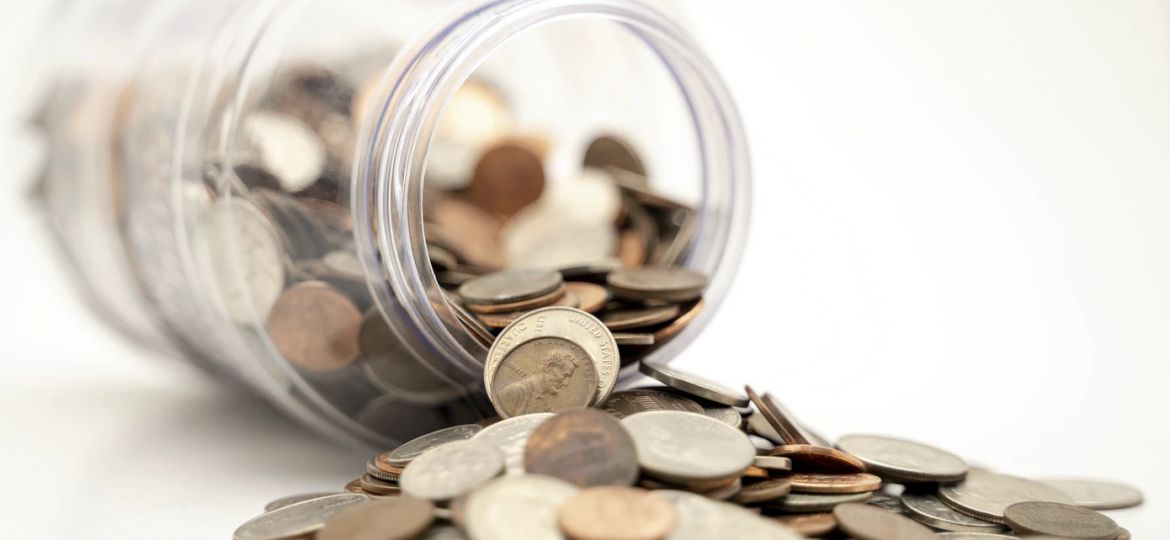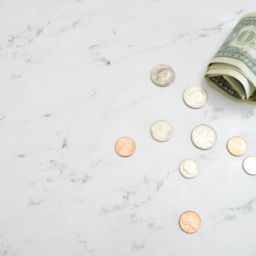
I’ve never been good with money. Just ask anyone who knows me. I am fully able to recognize that there are many, many things I’m good at and smart about—and budgeting and saving have just never topped that list.
Now, I’ve always taken care of myself, but big picture thinking? Well, I admit I wasn’t doing much of it…until now. And I know I can’t simply blame that on living in big, expensive cities like New York or Los Angeles while working in the rewarding, but not always crazy lucrative, world of publishing. I knew I should be thinking about such things, especially as a single woman and the sole provider for ME—but I went into classic avoidance mode. In my younger days, perhaps I could have said that I just thought each year I’d make more money than the one before—but I’ve lived too much life to think that’s true.
But in 2020, I finally got my ass in gear in no small part thanks to my little brother’s career in financial management. Did it feel great as the type-A, eldest child to admit that I had pretty much nothing in order, on top of carrying some credit card debt? It did not. But I’m so glad I did.
I started really breaking down my budget, figuring out the best retirement account for me to pay into (and moving money that had been sitting in long-abandoned 401Ks into said account), investing in a life insurance plan with long-term disability that will pay out when I’m older, and tackling my debt.
As a freelancer, that sort of planning is both utterly important and hard to do since your income can vary greatly from month-to-month depending on your gigs. And then something like a global pandemic hits and can throw everything into a tailspin. I was very lucky and feel so grateful that I had a steady gig come along that allowed me to put myself in a really healthy financial position over the course of the past eight months. I know that’s not the case for so many people, but there are a lot of ways to be flexible and still thoughtful in your financial planning as circumstances change, in both good and bad ways.
I’m in my 40s and finally sorted some of this stuff out, which is to say it’s never too late. And I cannot express to you the relief I feel now that I have even a modicum of a plan in place for my future. It’s not always fun, but I feel like it’s some of the best self-care I’ve ever done.
To that end, I asked two local money experts for some tips I wish I had thought about long ago. I hope they’ll help you too! And if you have finance questions, send them to editorial@indymaven.com and we can try to get them answered in future columns.
What are the most important factors to consider when you’re trying to either get out of debt and/or start saving?
Financial coach and consultant Julie Sandler has a few factors you should consider:
—What kind of debt do you have? Student loans? Credit card debt? A mortgage? Not all debt is equal.
—What are the interest rates? (Hint: They’re very low right now!)
—Prioritize your debt by paying off your highest interest rate debt first. Pay more than the minimum payment each month, put it on auto-payment, set it, and forget it.
—Look into consolidating options you have to consolidate your date. If you can lower your interest rate(s) and minimize the number of payments, it could be worth it.
—At the same time that you’re paying off debt, if you have access to a tax-advantaged retirement savings plan, make sure you are contributing every paycheck. Set it up for auto-deductions so you don’t have to think about it. You can also set up an auto-transfer from your checking account to your savings account each week. Even if it’s $10 a week, it’s likely that you won’t miss that $10, and the money in your savings account will accumulate quickly! Challenge yourself to save more than you think you can. If it isn’t working, you can always scale back.
For many people, this year has been a financial struggle. Can you still try to save? How can one re-arrange their priorities when there may be less money coming in?
Sandler says you should figure out much money you can save each week or month, and put that away first. “Most people spend first and then save what’s left, if anything at all. Save first and then spend what’s left,” she says. “This is the very best way to achieve your savings goals.” She also said that while the past year has been challenging on so many levels, “Now is a great time to reevaluate your priorities while the pace of life is a lot slower for most.”
If you’re trying to save, she lays out two simple options: spend less or make more.
SPEND LESS: Analyze your spending. Go through your subscription services, for example; look at how you spend the discretionary money that you do have. What is making you happy? What types of things do you spending on that doesn’t contribute to your overall happiness? Experiment. You may think that getting a $6 chai almond latte every morning is a necessity. Experiment with making coffee at home for two weeks and see how you feel.
MAKE MORE: Add a side hustle, even if it’s pet sitting, tutoring via Zoom, consulting on resumé writing. There is always a way to generate more income if you’re motivated .
Financial planner Sheila Roesler also offered some great advice for leaner times.
—Barter/swap/trade/repurpose: Share larger quantity items (like, from Costco) with friends or swap the fruits of your hobby or passion with a friend or colleague.
—Take advantage of all the many freebies out there in the world—and maybe lose your Amazon password.
—Remember that this is a marathon, not a sprint. Doing lots of little things right, and avoiding mistakes, is far more valuable than some big move we all think or wish we could make!
—If you can, keep saving little bits in that retirement fund, even when the headlines are ugly. It’s basically on sale and your modest investment will buy more investment shares.
—Check on your income tax withholding at work. While many love to get that refund check, that is the U.S. government or the state of Indiana using your money interest-free for a year or more. It’s better to get it just right or, once you have your savings account, owe them a little.
The gig economy is a way of life for many Americans and especially women. That means you don’t always have the structure of 401Ks, insurance, etc., from your employer. What are some important things to consider if this is your situation in terms of savings and planning for retirement?
Roesler reminds us that individuals and gig workers can save in IRAs (Individual Retirement Accounts. There is no corporate match, but it’s still a good vehicle for savings and you are able to invest as little as $25-$50 a month, which can really add up. She also recommends you speak to an expert about preparing your taxes as well as looking into long-term life insurance and investment options. “Everyone can benefit from a plan,” Roesler emphasizes. “Financial planning is not just for the wealthy. Arguably, those with more limited resources need it more as there is less margin for error.”
I know this was true for me, but I’m sure many others too. You can feel embarrassed that you’ve not done this sooner. So what are small steps women can take that don’t feel so daunting but can set them up for future success?
“It is nothing to be embarrassed about,” Sandler says. “The majority of people are not taught personal finance and there is no one who tells you what to do and when!” She says that first you’ve got to face your financial situation, “especially those things that are keeping you up at night.” You can start with little steps like committing to pay a little more of your debt each month. Sandler recommends you write down your financial goals—and allow yourself to dream! Also, you can speak to a trusted friend, relative, or professional about how to achieve those goals. “You don’t have to go through it alone!” she adds.
Roesler agrees that seeking expert advice is a great start and reminds us that no person’s situation is “average” or “typical.” We all have unique issues to address and what works for one person might not be right for you. But she insists it’s also really important to celebrate your progress—and I wholeheartedly concur. There’s a reason so many people avoid their finances and that’s because it’s hard! But as Roesler and Sandler both say, doing small things can offer a big payoff down the road.
So why not start now?
Abby Gardner is Indy Maven’s (happily debt-free) executive editor.
















